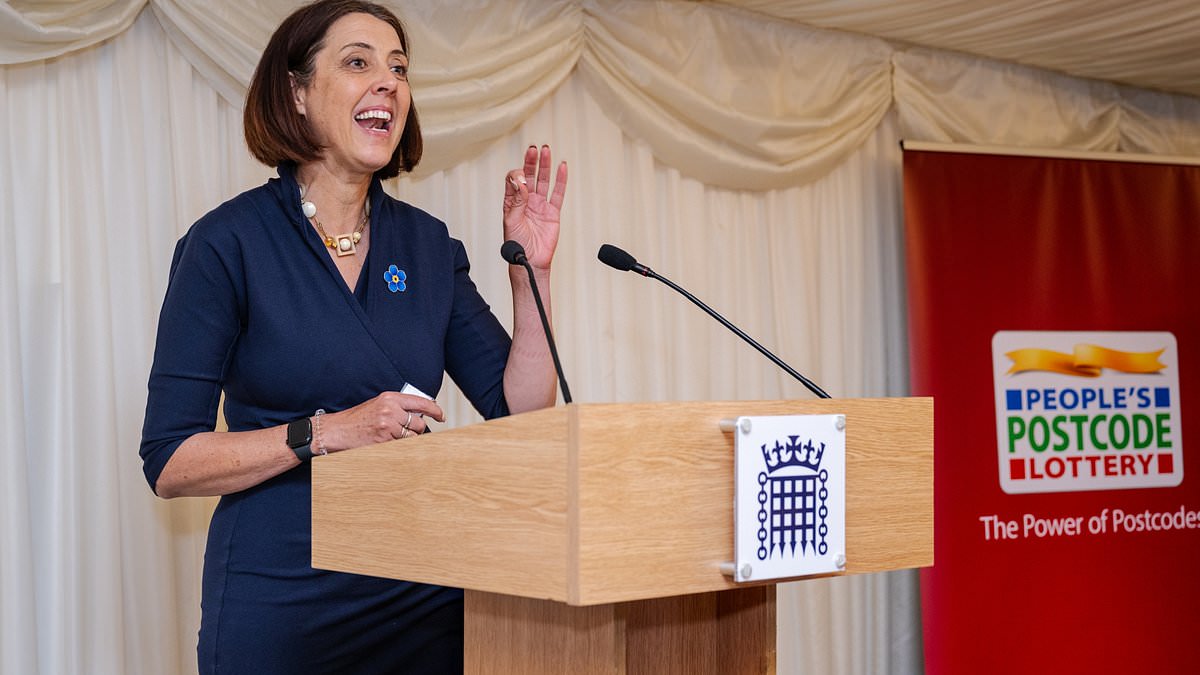Charities are being put at risk due to a reluctance to donate towards ‘unexciting’ running costs like energy bills and travel expenses, the head of the Alzheimer’s Society warned today.
Kate Lee, who is stepping down as CEO of the care and research organisation after five years in the post, said charities were struggling with rising prices at the same time supporters had less money to give due to the cost of living crisis and broader economic uncertainty.
But she claimed these issues were being exacerbated by a preference for funding high-profile projects like scientific research rather than the basic costs of doing business.
‘Unlike exciting research and life saving services few donors step forward to pay our increasing utility bills, the uplifts minimum wages for many of our service delivery and fundraising staff,’ she told a Westminster event hosted by People’s Postcode Lottery.
‘They don’t want to cover the travel expenses of our incredible volunteers who can no longer afford to volunteer their time and money.
‘They don’t want to pay for our cyber security training, the upgrade of our safeguarding system, reducing our carbon footprint or increasing insurance premiums to comply with changing legislation. And yet this is our life blood.’
The National Living Wage for those aged over 21 rose from £11.44 per hour to £12.21 per hour in April, while the rate for 18- to 20-year-olds increased from £8.60 to £10.00.
Ms Lee also referenced Chancellor Rachel Reeves’ hike to employer National Insurance contributions (NICs) as among the additional costs facing charities.
The rate of employer NICs rose from 13.8 per cent to 15 per cent from April 6, as the Treasury attempts to raise around £25billion a year.
In March, regulated rail fares in England and Wales increased by 4.6 per cent, while energy bills for the typical family went up by 6 per cent in April, reflecting rising wholesale costs that will also affect charities and businesses.
Ms Lee said many charities were relying on the People’s Postcode Lottery – a subscription lottery that raises money for good causes – to cover their running costs.
Under current legislation, each charity lottery is called at selling £50m worth of tickets each year, but the Alzheimer’s Society chief called for this limit to be removed to free up more funds to help charities deal with rising costs.
‘I get that the burden of doing business is growing as the state grapples with its finances,’ she said.
‘But here is a simple and cost-effective way the government can help protect the future of its thriving voluntary sector, something which remains the envy of the world, at the heart of every community, something we cannot allow to become extinct.’
Several charities have closed in recent months after struggling with rising bills.
They include Bridge Project Sudbury, a Suffolk-based project helping adults with learning difficulties that has gone into liquidation after 30 years in operation.
The trustees said in a statement: ‘Rising costs – including higher wages, National Insurance contributions, and the overall impact of inflation – have made it impossible to continue operating.
‘Despite exploring every possible option, we have reached a point where we can no longer sustain our services.’
Age UK Lindsey, a local branch of Age UK operating in Lincolnshire, also closed this week citing ‘the Covid-19 pandemic, cost of living crisis and increases in National Insurance and the minimum wage’.
Meanwhile, a pet rescue charity revealed earlier this year that it faced closure after receiving a demand for £51,000 from its energy supplier.
London-based Dogs on The Streets (Dots), which provides vet care for and rehomes pets formerly owned by homeless people, was paying roughly £500 per month for energy bills at its centre in Enfield, North London.
Dots founder Michelle Clark said problems started in January 2024, when she contacted an energy broker to see if she could switch suppliers and cut the charity’s costs.
As most of the charity’s volunteers spend their time working with the dogs outside – and it does not use the heating – she felt its bills were too high.
But the proposed switch prompted their new energy company to review Dots’ account, after which it took a shock one-off £5,000 direct debit from the charity’s bank account.
